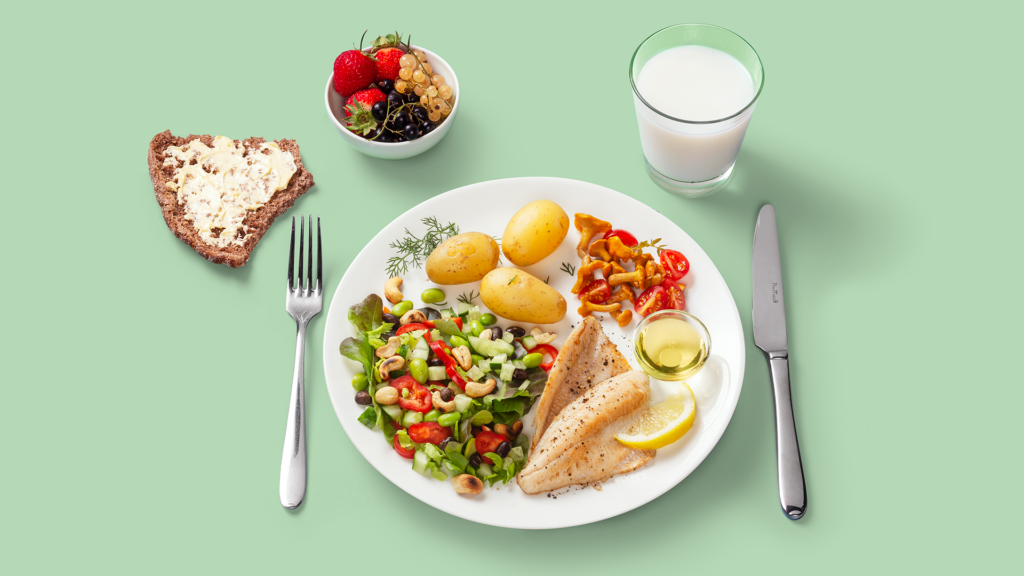Balanced nutrition
There are many ways to make healthy food choices, and it doesn’t have to be complicated. A good starting point is to learn to eat regularly and in the right amounts, and to follow a varied, flexible diet.
Regular eating helps you cope with day-to-day life and better concentrate on your studies. Try to eat every 2-4 hours during the day, including breakfast, lunch, dinner and 1-3 snacks as necessary. Regular eating keeps your blood sugar steady and helps you recognize when you’re hungry or full.
Eating the right amounts and following a varied diet gives you the energy and nutrients you need, enabling your body to function normally. You can achieve this by eating a wide variety of foods and learning to find the portion sizes that are right for you.
Flexible eating is about having a relaxed attitude to food. Enjoying food is part of eating. Eating varies depending on the situation, and it’s OK to eat all kinds of foods. Flexible eating supports both physical and mental wellbeing.
Ideally, eating a balanced diet is enjoyable, healthy, stress-free, sociable and helps you cope with day-to-day life.

Read more about healthy food choices
Vegetables, fruits and berries
We all know that vegetables, fruits and berries are healthy, as they are a source of vitamins, fibre, minerals and trace elements and add colour and flavour to meals. Aim to eat at least 6–9 handfuls per day.
Cereal products
Cereal products are an important source of energy, and there are lots to choose from. Eat wholegrains, as they’re rich in fibre and nutrients. Sufficient intake of fibre is especially good for a healthy gut.
Dairy products and plant-based alternatives
Dairy products are an important source of calcium and vitamin D and promote bone health. If you use them regularly, favour low-fat or fat-free options. There are now plenty of enriched plant-based products available (with added calcium and vitamins, for example) such as soy or oat products. You can use them instead of dairy products.
Meat products and plant-based protein sources
Eat fish 2-3 times a week as a source of protein. Avoid consuming more than 350 grams of red meat and meat products a week. You can replace animal-based proteins with eco-friendly plant-based proteins, such as soy (tofu and textured soy protein), pulses (beans, peas and lentils) or other plant-based protein products.
Sources of fat
Soft, unsaturated fats are good for cardiovascular health. Good sources of soft fat include vegetable oils (except palm and coconut oil), vegetable fat spreads, oily fish and nuts, seeds and almonds. You should replace hard, saturated fats with foods containing soft fats.
Goodies
Goodies are primarily eaten for their taste and the pleasure they bring. You can eat them in moderation as part of a varied, balanced diet. Foods of this kind generally contain plenty of sugar and/or fat.
Salt
Foods may contain salt, either added (table salt, sodium chloride) or naturally. Most people’s salt consumption exceeds the recommendations, and cutting down on salt is beneficial for health. You can reduce your salt intake by choosing products containing less salt and by seasoning food with spices and herbs instead. Your taste buds will get used to the change in just a few weeks.
(Updated 7 Jan 2025)
